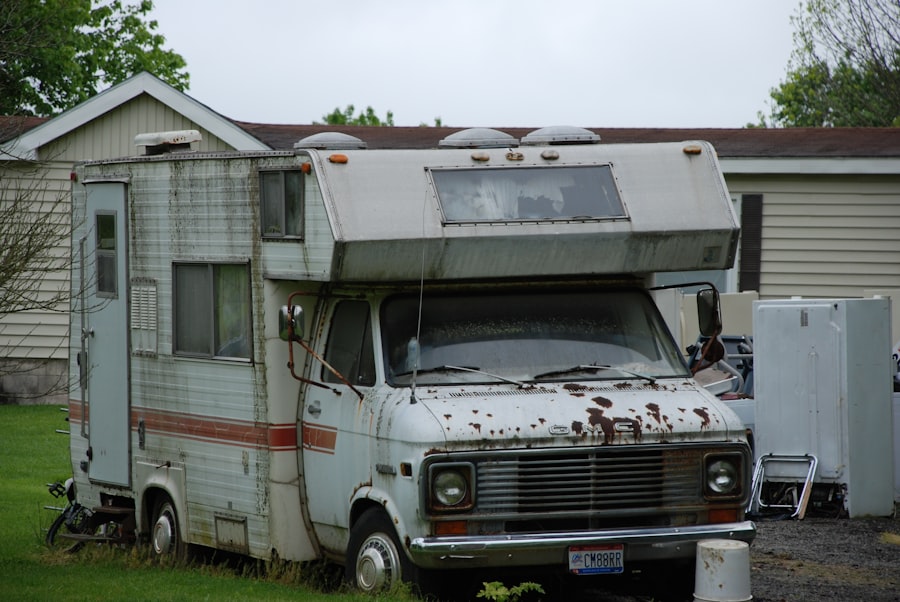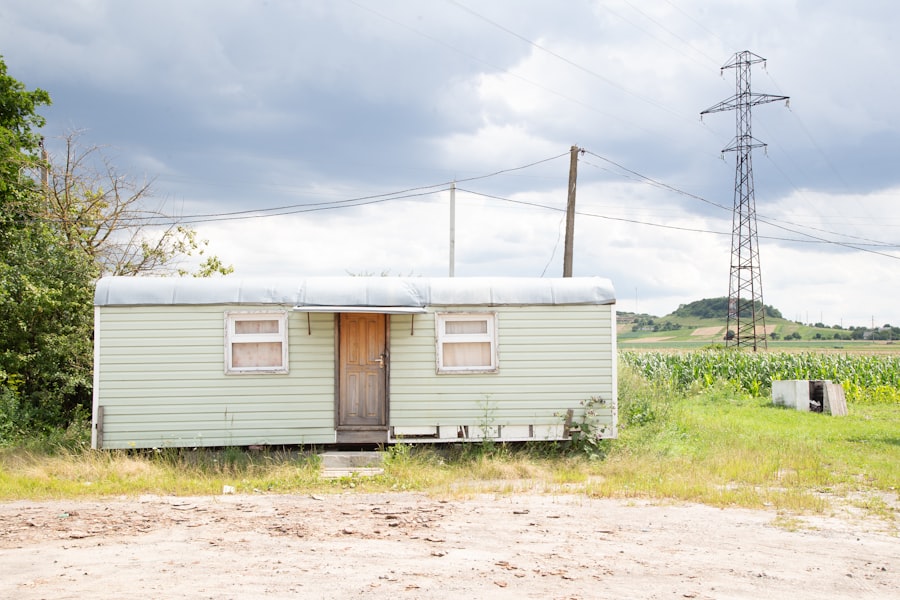Trailer homes, often referred to as mobile homes or manufactured homes, are prefabricated structures that are built in a factory and transported to a designated site. These homes are designed to be movable, although many remain stationary once placed on a permanent foundation. The construction of trailer homes adheres to specific federal standards set by the U.S.
Department of Housing and Urban Development (HUD), which ensures that they meet safety and quality regulations. Typically, trailer homes come in various sizes and layouts, ranging from single-section units to larger double-wide models, accommodating diverse family needs and preferences. When considering a trailer home, potential buyers should be aware of the various features and amenities that can be included.
Many modern trailer homes boast contemporary designs, energy-efficient appliances, and open floor plans that maximize space. Additionally, they often come equipped with essential utilities such as plumbing, electrical systems, and heating and cooling options. Buyers can expect to find a range of customization options, allowing them to personalize their living space according to their tastes.
However, it is crucial to understand that while trailer homes offer flexibility and affordability, they may also come with unique challenges related to zoning laws, land ownership, and community regulations.
Key Takeaways
- Trailer homes offer affordable and flexible housing options with unique living experiences.
- Buying directly from owners can provide better deals and personalized negotiations.
- Financing trailer homes may require specialized loans different from traditional mortgages.
- Regular maintenance is essential to preserve the value and comfort of trailer homes.
- Living in trailer parks fosters a close-knit community but requires understanding park rules and lifestyle.
Advantages of Buying a Trailer Home
One of the most significant advantages of purchasing a trailer home is affordability. Compared to traditional site-built homes, trailer homes typically have lower purchase prices, making them an attractive option for first-time buyers or those looking to downsize. The cost savings extend beyond the initial purchase; trailer homes often incur lower property taxes and utility bills due to their smaller size and energy-efficient designs.
This financial accessibility allows individuals and families to invest in homeownership without the burden of overwhelming debt. Another notable benefit is the flexibility that trailer homes provide. Many buyers appreciate the ability to relocate their home if necessary, whether due to job changes or personal preferences.
This mobility is particularly appealing for those who enjoy traveling or wish to explore different regions without the commitment of a traditional home purchase. Additionally, trailer homes can be placed in various settings, from rural areas to urban developments, offering diverse lifestyle options. The ability to choose a location that aligns with one’s lifestyle preferences—be it near nature, urban amenities, or family—adds to the appeal of trailer home living.
Finding Trailer Homes for Sale by Owner

When searching for trailer homes for sale by owner, prospective buyers can utilize various resources to streamline their search. Online platforms such as Craigslist, Facebook Marketplace, and specialized real estate websites often feature listings from private sellers. These platforms allow buyers to connect directly with owners, potentially leading to more favorable negotiations without the involvement of real estate agents.
Additionally, local classifieds in newspapers or community bulletin boards can provide leads on available properties. Networking within local communities can also yield fruitful results. Attending local events or joining social media groups focused on housing can help buyers discover opportunities that may not be widely advertised.
Engaging with current trailer home residents can provide insights into available properties and the overall living experience in specific areas. Furthermore, word-of-mouth referrals can lead to hidden gems that might otherwise go unnoticed in the competitive housing market.
The Process of Buying a Trailer Home
| Step | Description | Estimated Time | Key Considerations | Typical Cost Range |
|---|---|---|---|---|
| 1. Research | Gather information on trailer home types, sizes, and prices. | 1-2 weeks | Compare models, read reviews, and check local regulations. | Free |
| 2. Budget Planning | Determine your budget including purchase, delivery, and setup costs. | 1-3 days | Include financing options and additional fees. | Varies |
| 3. Visit Dealers | Inspect trailer homes in person and ask questions. | 1-2 weeks | Check build quality and available warranties. | Free |
| 4. Financing | Apply for loans or arrange payment methods. | 1-4 weeks | Compare interest rates and loan terms. | Varies |
| 5. Purchase Agreement | Negotiate price and sign contract. | 1-3 days | Review terms carefully and confirm delivery details. | Varies |
| 6. Delivery and Setup | Arrange transportation and installation at your site. | 1-2 weeks | Check site preparation and utility hookups. | 500 – 5000 |
| 7. Inspection and Final Walkthrough | Ensure the trailer home meets agreed standards. | 1 day | Document any issues for resolution. | Free |
| 8. Move-In | Settle into your new trailer home. | Varies | Arrange utilities and furnishings. | Varies |
The process of purchasing a trailer home involves several key steps that require careful consideration and planning. Initially, potential buyers should assess their financial situation and determine a budget that includes not only the purchase price but also additional costs such as transportation, installation, and ongoing maintenance. Once a budget is established, buyers can begin searching for suitable properties that meet their criteria in terms of size, location, and amenities.
After identifying a potential trailer home, it is essential to conduct thorough due diligence before finalizing the purchase. This includes inspecting the home for structural integrity, checking for any signs of damage or wear, and ensuring that all necessary utilities are functional. Buyers should also verify the legal status of the property, including land ownership or lease agreements if the home is situated in a trailer park.
Engaging a qualified inspector can provide peace of mind and help identify any hidden issues that may affect the home’s value or livability.
Financing Options for Trailer Homes
Financing a trailer home can differ significantly from traditional home loans due to its classification as personal property rather than real estate in some cases. Many lenders offer specialized loans for manufactured homes, which may include personal loans or chattel loans specifically designed for mobile homes. These loans typically have different terms and interest rates compared to conventional mortgages, so it is crucial for buyers to research their options thoroughly.
Additionally, some buyers may consider government-backed loan programs such as those offered by the Federal Housing Administration (FHA) or the U.S. Department of Agriculture (USDA). These programs can provide favorable terms for eligible borrowers, including lower down payments and reduced interest rates.
It is advisable for potential buyers to consult with financial advisors or mortgage brokers who specialize in manufactured housing to explore all available financing avenues and determine the best fit for their financial situation.
Maintenance and Upkeep of Trailer Homes

Maintaining a trailer home requires attention to detail and regular upkeep to ensure its longevity and comfort. One of the primary considerations is the exterior maintenance, which includes inspecting the roof for leaks, checking siding for damage, and ensuring that windows and doors are properly sealed against weather elements. Regular cleaning and maintenance of gutters are also essential to prevent water damage and maintain structural integrity.
Interior maintenance is equally important; homeowners should routinely check plumbing systems for leaks, inspect electrical systems for safety hazards, and ensure that heating and cooling systems are functioning efficiently. Additionally, regular inspections of appliances can help identify potential issues before they escalate into costly repairs. Establishing a maintenance schedule can aid homeowners in staying proactive about upkeep and preserving the value of their investment over time.
Community Living in Trailer Parks
Living in a trailer park offers a unique sense of community that many residents find appealing. These parks often foster close-knit relationships among neighbors who share similar lifestyles and values. Many parks organize social events such as potlucks, game nights, or holiday celebrations that encourage interaction among residents and create a supportive environment.
This sense of belonging can be particularly beneficial for individuals or families who may feel isolated in more traditional housing settings. Moreover, trailer parks often provide amenities that enhance residents’ quality of life. Common features may include recreational facilities such as swimming pools, playgrounds, or community centers where residents can gather for activities or meetings.
The presence of shared spaces encourages socialization and fosters friendships among residents of all ages. Additionally, many parks prioritize safety and security through gated access or on-site management, providing peace of mind for families living within these communities.
Considerations Before Purchasing a Trailer Home
Before committing to the purchase of a trailer home, prospective buyers should carefully evaluate several factors that could impact their decision. One critical consideration is zoning regulations; different areas have varying laws regarding where trailer homes can be placed or parked. Understanding these regulations is essential to avoid potential legal issues down the line.
Buyers should also consider whether they prefer to rent land in a trailer park or purchase land outright for their home. Another important aspect is the resale value of the trailer home. While many manufactured homes appreciate over time, others may depreciate depending on market conditions and location.
Researching comparable sales in the area can provide insight into potential future value and help buyers make informed decisions about their investment. Additionally, understanding the long-term costs associated with owning a trailer home—such as maintenance expenses, property taxes, and insurance—can help buyers prepare financially for their new lifestyle. In summary, purchasing a trailer home presents an array of opportunities for affordable living while fostering community connections.
By understanding the nuances of this housing option—from financing to maintenance—buyers can navigate the process with confidence and make informed decisions that align with their lifestyle goals.



